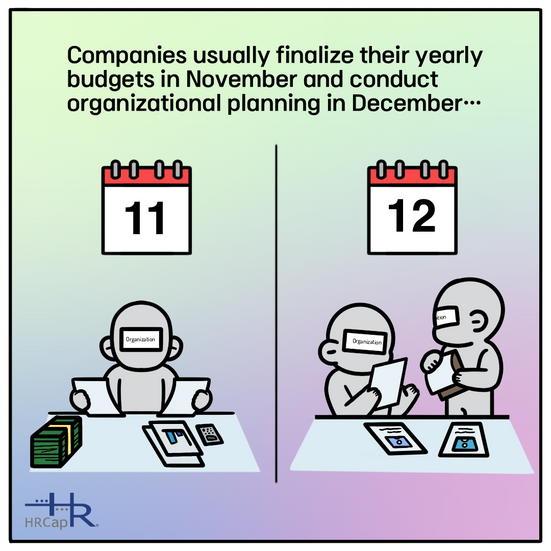[Expert Column] A Headhunter’s Secret Is Out – The Best Time to Change Jobs
- jonathanlee41
- Dec 21, 2023
- 3 min read
Updated: Jan 17, 2024
Written by Stella H. Kim
Published December 20, 2023
The best time to switch jobs comes only when we invest internally

When is the best time to change jobs?
According to the Bureau of Labor Statistics, the average annual quit rate is the highest in January and August. Employees often “Bonus Bounce,” leaving right after their end-of-year bonuses, fall into “Summer Slumps,” and seek change through new career opportunities. Forbes predicts that the largest resignation in 20 years will occur in January 2024, the “January Exodus.”
Generally, the end of the year is the most common time people consider a job change. As the new year approaches, many seek advice on how much prior experience is sufficient to change jobs, and how long they should effectively prepare for the job change. According to the HRCap 2000-2023 Candidate Survey analysis, the most common reasons for leaving the current workplace are due to misalignment in salary, company culture, roles and responsibilities, company vision, and relationships with managers or colleagues. Some ultimately decide to leave in disagreement with their end-of-year performance review results, or because they are dissatisfied about not receiving promotions, bonuses, or annual salary increases.
The hiring pipelines are also much more robust at the beginning of the year. Companies usually finalize their budgets in November, conduct organizational planning in December, and then actively recruit in January and February to achieve their business goals in the coming year. As many vacancies are created through high turnover at the beginning of the year, many more opportunities are opened up for job seekers as well.
From the perspective of a recruiter and headhunter at the center of the job market, it only seems fitting to advise job seekers to always be prepared for a job change to raise their market value. However, rather than changing jobs just for the sake of raising market value, we advise candidates to focus on refining their value proposition and career portfolio instead.
First, candidates should assess whether they actually have the competencies equivalent to their annual salary and whether they are performing up to individual and organizational performance expectations. We recommend learning how to efficiently streamline and prioritize tasks when overwhelmed with a higher workload to stay productive and effective. Both companies and individuals must take accountability for continuous learning and collective growth.
With so many job hoppers in the market, employers now value employees who continue to show commitment and growth above candidates who interview well for new opportunities. They are also proactively investing in leaders with demonstrated ability to futureproof the workplace.
From a headhunter’s point of view, ideal candidates are not ones that actively interview. Rather, they are those who understand their own value add, remain faithful to their current organization, and strive to consistently grow. It's only by finding transformational opportunities in their current position rather than looking outside, that these top professionals can confidently say that they have truly achieved meaningful success.
The best time to change jobs is yet to come. Only when we take the time to invest in developing our inner selves, when we become an unbreakable vessel able to overcome any conflicts and hardships, and when we are least expecting it, the right opportunity will come to find us instead.
Stella H. Kim, SPHR
HRCap – SVP, Head of Americas & Chief Marketing Officer


























































Comments